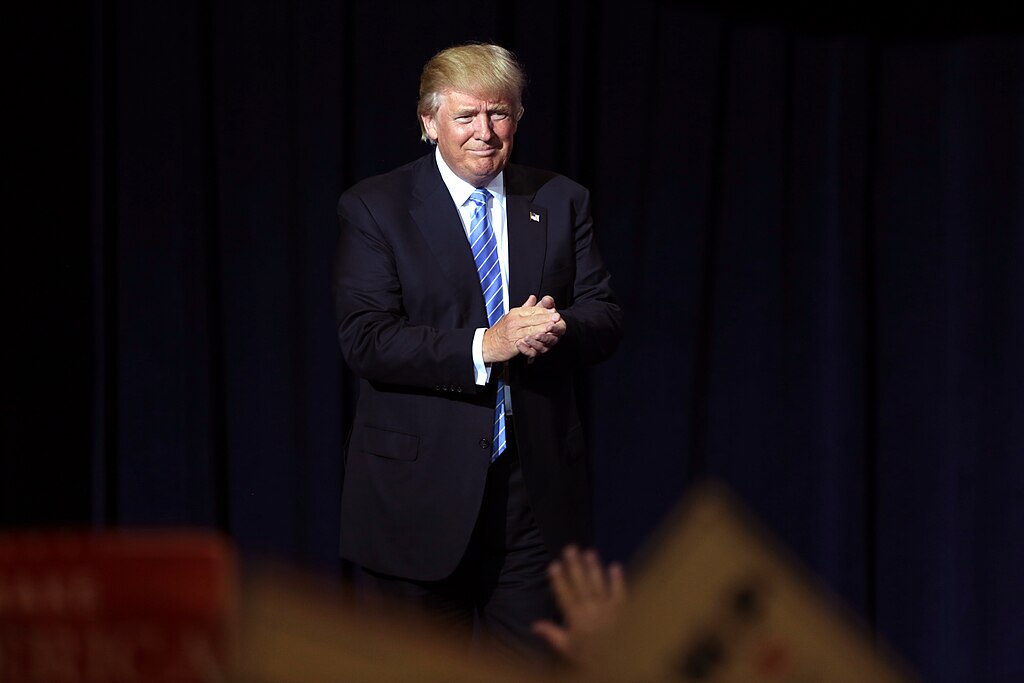President-elect Donald Trump has pledged to sign executive orders aimed at prohibiting gender-affirming medical treatments for minors, referring to such procedures as "child sexual mutilation." This initiative is part of a broader agenda to restrict transgender rights and access to gender-affirming care across the United States.
Proposed Executive Actions
Trump's plan includes issuing an executive order directing all federal agencies to cease programs that promote the concept of sex and gender transition at any age. Additionally, he intends to ask Congress to pass legislation prohibiting what he terms "child sexual mutilation" in all 50 states. He also proposes cutting off federal funding, including Medicare and Medicaid, to healthcare providers that offer gender-affirming treatments to minors.
Impact on Gender-Affirming Care
Gender-affirming care encompasses a range of medical and psychological services designed to support individuals whose gender identity differs from their sex assigned at birth. For minors, this care may include puberty blockers, hormone therapy, and counseling. Major medical organizations, such as the American Medical Association and the American Academy of Pediatrics, endorse gender-affirming care as essential for the well-being of transgender youth. They warn that restricting access could lead to increased mental health issues, including depression and suicide.
Legal and Ethical Considerations
The proposed executive orders raise significant legal and ethical questions. Critics argue that such measures infringe upon parental rights and the doctor-patient relationship. Legal experts suggest that attempts to federally ban gender-affirming care for minors may face constitutional challenges, particularly concerning states' rights and individual liberties. Furthermore, the use of the term "child sexual mutilation" to describe gender-affirming procedures has been criticized as inflammatory and misleading.
Public Reaction and Social Media Discourse
The announcement has sparked a wide range of reactions on social media platforms. Twitter user @TransRightsNow expressed concern, stating, "Denying essential healthcare to transgender youth is a violation of human rights." In contrast, @ProtectOurChildren supported the initiative, tweeting, "It's about time we put an end to these harmful practices on our kids."
Another user, @MedicalEthicsAdvocate, noted, "Politicizing medical care sets a dangerous precedent for all patient rights." Conversely, @FamilyFirstUSA argued, "Parents should not be allowed to consent to irreversible procedures on minors."
Additionally, @LGBTQSupporter emphasized the importance of acceptance: "Transgender youth need support and understanding, not government-imposed barriers to care." Meanwhile, @ConservativeVoiceUSA commented, "This is a necessary step to protect vulnerable children from life-altering decisions."
As Trump prepares to assume office, his commitment to halting what he describes as "child sexual mutilation" underscores a broader agenda to restrict transgender rights in the United States. The proposed executive orders are likely to face legal challenges and have ignited a national debate on the ethics and legality of gender-affirming care for minors. The outcome of this initiative will have profound implications for transgender youth, healthcare providers, and the ongoing discourse surrounding LGBTQ+ rights in the country.



 U.S. Plans 4,500 Monthly Refugee Admissions for White South Africans Amid Policy Debate
U.S. Plans 4,500 Monthly Refugee Admissions for White South Africans Amid Policy Debate  Keir Starmer Faces Crucial By-Election Test in Manchester Amid Tight Three-Way Race
Keir Starmer Faces Crucial By-Election Test in Manchester Amid Tight Three-Way Race  IMF Urges U.S. to Cut Fiscal Deficit to Reduce Trade and Current Account Gaps
IMF Urges U.S. to Cut Fiscal Deficit to Reduce Trade and Current Account Gaps  Australian PM Calls Alleged Western Australia Terror Plot “Deeply Shocking” After Arrest
Australian PM Calls Alleged Western Australia Terror Plot “Deeply Shocking” After Arrest  Melania Trump to Chair UN Security Council Meeting as U.S. Assumes Presidency
Melania Trump to Chair UN Security Council Meeting as U.S. Assumes Presidency  Trump Floats Ted Cruz for Future U.S. Supreme Court Nomination
Trump Floats Ted Cruz for Future U.S. Supreme Court Nomination  Pentagon to Halt Ivy League Programs for U.S. Military Officers Starting 2026
Pentagon to Halt Ivy League Programs for U.S. Military Officers Starting 2026  U.S. Signals Openness to North Korea Talks as Kim Jong Un Calls for Shift in “Hostile Policy”
U.S. Signals Openness to North Korea Talks as Kim Jong Un Calls for Shift in “Hostile Policy”  Ecuador Raises Tariffs on Colombian Imports to 50% Amid Border Security Dispute
Ecuador Raises Tariffs on Colombian Imports to 50% Amid Border Security Dispute  UK Government Agrees to Release Documents on Peter Mandelson Appointment Amid Epstein Scandal
UK Government Agrees to Release Documents on Peter Mandelson Appointment Amid Epstein Scandal  Philippines, U.S., and Japan Conduct Joint Naval Drills in South China Sea to Boost Maritime Security
Philippines, U.S., and Japan Conduct Joint Naval Drills in South China Sea to Boost Maritime Security  Trump Media Weighs Truth Social Spin-Off Amid $6B Fusion Energy Pivot
Trump Media Weighs Truth Social Spin-Off Amid $6B Fusion Energy Pivot  UN Rapporteur Francesca Albanese Condemns “Toxic” Attacks Amid Calls for Resignation
UN Rapporteur Francesca Albanese Condemns “Toxic” Attacks Amid Calls for Resignation  Federal Judge Blocks Virginia Social Media Age Verification Law Over First Amendment Concerns
Federal Judge Blocks Virginia Social Media Age Verification Law Over First Amendment Concerns  U.S.-Iran Nuclear Talks Show Progress but No Breakthrough Amid Rising Military Tensions
U.S.-Iran Nuclear Talks Show Progress but No Breakthrough Amid Rising Military Tensions  Trump Floats “Friendly Takeover” of Cuba as Rubio Reportedly Engages in Talks
Trump Floats “Friendly Takeover” of Cuba as Rubio Reportedly Engages in Talks  Germany and China Reaffirm Open Trade and Strategic Partnership in Landmark Beijing Visit
Germany and China Reaffirm Open Trade and Strategic Partnership in Landmark Beijing Visit 



























